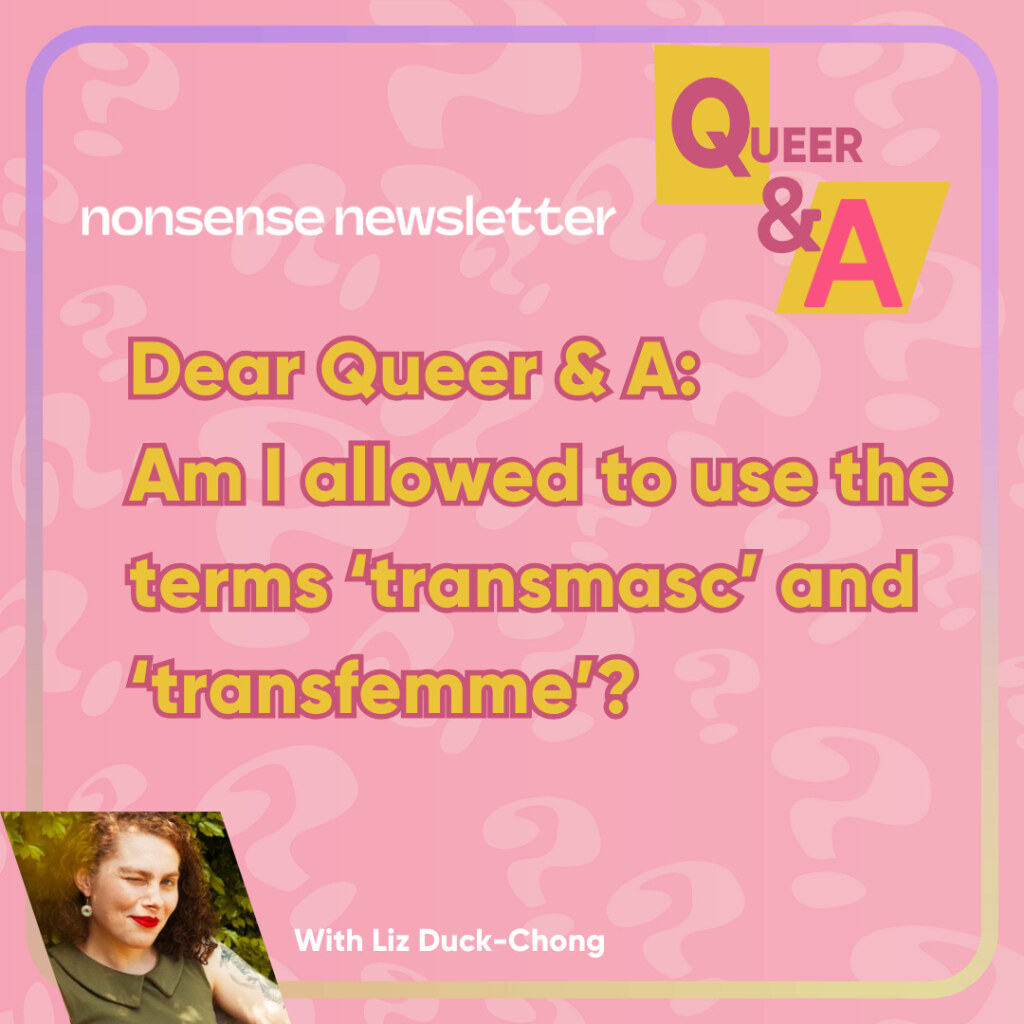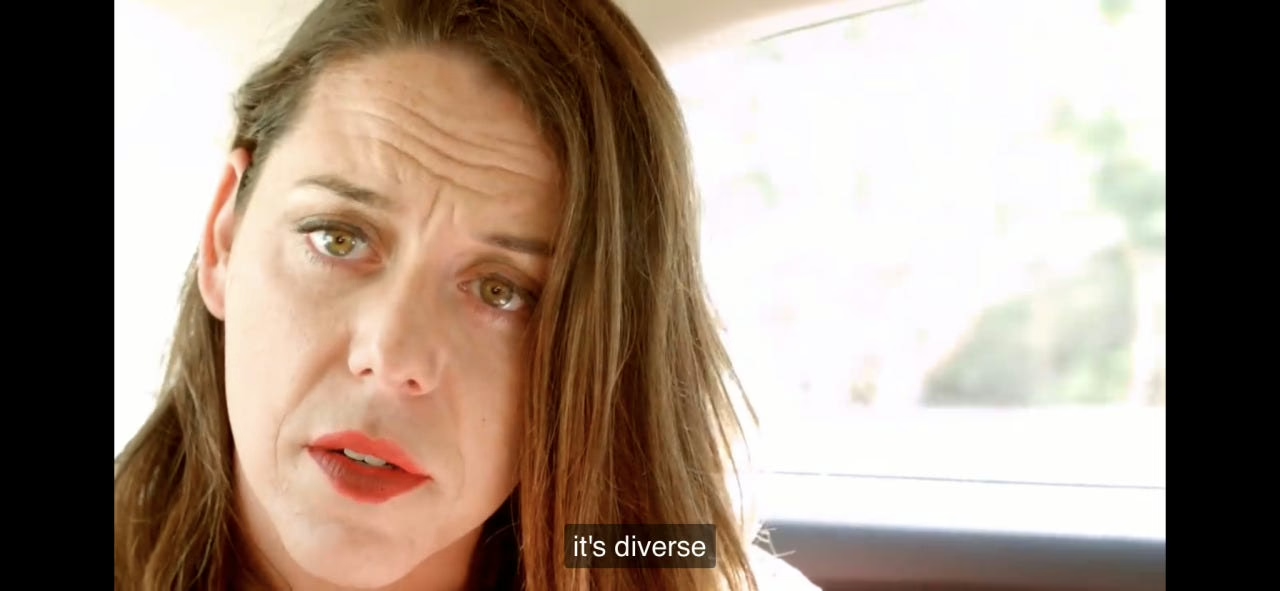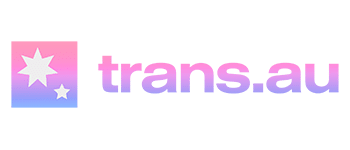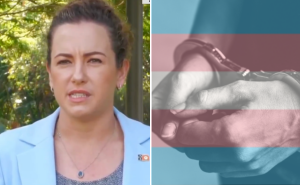This article was originally published by the Nonsense Newsletter team. You can find the original article here.
“Dear Queer&A. I’ve seen people using transmasc and transfemme instead of ‘trans guys’ or ‘trans girls’ – am I allowed to use those terms, and when is it suitable?

Dear reader,
Thank you for your question, and for the generosity of asking. I will admit, as I spoke to friends about starting this column, it came up more than once that queer advice columns all too often get bogged down in the letters, language, and terminology we all use. It’s true, there is a lot of language and it can seem to change rapidly, but I thought this a great place to set the tone of what we’re trying to do here, help you out, and ideally not get bogged in along the way.
Despite my fresh-faced appearance (for which all thanks goes to the youthful-making black magic of exogenous estrogen and 50+ SPF sunscreen), I’ve been around in trans circles for long enough to see the language paradigms shift many times over.
When I was coming of trans age, you were either MTF or FTM based on what you were born and where you were going, and we were well into the transsexual vs transgender debate, with a lot of people using transgendered in lieu of helpful language guides and resources (myself included!). All along, genderqueer people were doing their thing and slowly breaking into the mainstream, and in the early oughts we got the term non-binary, both of which have since danced in popularity with different generations and experiences. Since then, things have kept the groove going: for a while we played around with adding a space between the words trans and gender, and then an asterisk just to keep it spicy, before quickly vetoing that one. We then got nostalgic for birth assignments again and dabbled in the regional dialects of Assigned Gender At Birth (AMAB/AFAB) or Presumed Gender At Birth (PMAB/PFAB), which has quickly gotten out of hand, but also popularised the term cisgender, as well as a range of other terms for diverse and neogenders.
Transmasc and transfemme (broadly seen as shortened versions of the terms transmasculine and transfeminine) have appeared in common parlance more recently, with the intent of being broader churches than language like trans men and trans women – ie. masc-ness or masculinity is a more broadly sought experience than maleness, and therefore describes not just trans men but trans people who aren’t men and who engage in the various delightful forms of masculinising and masculinity. They may seem like small or subtle departures, but like our long and swerving linguistic history, are all created in the earnest attempt to better describe and categorise our lives.
The thing is, to talk about language is to step into the bog at least a little bit – so let’s get our gumboots on. For all the value of more broad terms like transmasc and femme, they still both oversimplify the experiences of people under those umbrellas, and don’t show how many other gendered experiences lie either in the space where those two circles touch, or outside of them entirely.
I always find it helpful to ask what the language we’re using and/or inventing is trying to do. Are we trying to understand the broad two schools of hormonal transition? – in which case there are two main groups (estrogen-based and testosterone-based), but both include people who are not masculine or feminine. Are we trying to understand body parts, including how people are affected by reproductive rights or healthcare? – again, we are just not as simple as two distinct categories. Knowing I’m transfemme tells you nothing about my genitals, my fertility, my base hormonal profile, or how I’ve been treated or mistreated based on those. Is it about shared experiences, upbringing, and socialisation? – I’m feel like a broken record here, but to flatten us out to two groups ignores the realities of class, ethnicity, ability and just physically where and when you grew up. No matter how much we stretch them to fit, it’s just never as simple as a binary.

As you ask this question, the context of where and how you ask is an essential part of the equation. Using those terms in a workplace or DEI setting is very different to brunch with your queer pals who are all dressed for a different event. If it’s a more formal, professional, or ally-based setting, I’d recommend finding a language guide from a local LGBTQ+ org, as this will be a good starting point for the words that are broadly accepted in your neck of the woods, or at the very least understood.
The reality is that there has long been a desire to name two large and broadly distinct sets of experiences: each assigned a rigid gender at birth, and then engaging in a range of practices to affirm and be one or more of a different set of genders, and I understand the urge! However we also have to remember that the push for binary and distinct gendered experiences is an explicit part of the colonialist project, and that any attempt to narrow the truly mind-bending diversity of gender to the comprehensible or the birth-assigned is doomed from the start.
As to whether you are allowed to use these words? My simplest answer is and will always be: ask. If you are unsure how to refer to a friend, or your comrades, or members of your wider community, a quick question on preference is rarely taken sorely if it’s a place of genuine learning. This is also a useful strategy because language not only varies from person to person, but between different cities and regions.
If and when you come across other new terms in the future, and are not sure if they’re the sorts of things you can or should say, do a quick online search for them and see what the results say: if the results include the language used in any mix of community glossaries, LGBTQ+ not-for-profit resources, articles from progressive news sources, or helpful discussions by fresh-faced advice columnists, you’re probably in the clear. If the results are predominantly blogs, personal essays about language, or vent posts, check in with a trusted friend of the community specific to the language used first.
Finally, I want to go back to you asking explicitly if you’re allowed, and to challenge that idea altogether. To frame language as something we are allowed to do (or not), implies a correct and incorrect, and not a place of continual striving to better understand each other and be connected. Instead, I encourage you to ask “does using these terms make my loved ones feel understood, and does using these terms help my community feel seen and safe?” – if we’re going to be imprecise, and I believe that language always will be, let’s at least get the most joy and connection out of it that we can.
—
QueerandA is a monthly advice column written by Liz Duck-Chong (she/they). If you have a question about queer life, gender, feminism, or just being a human in this day and age, you can get in touch at [email protected]




